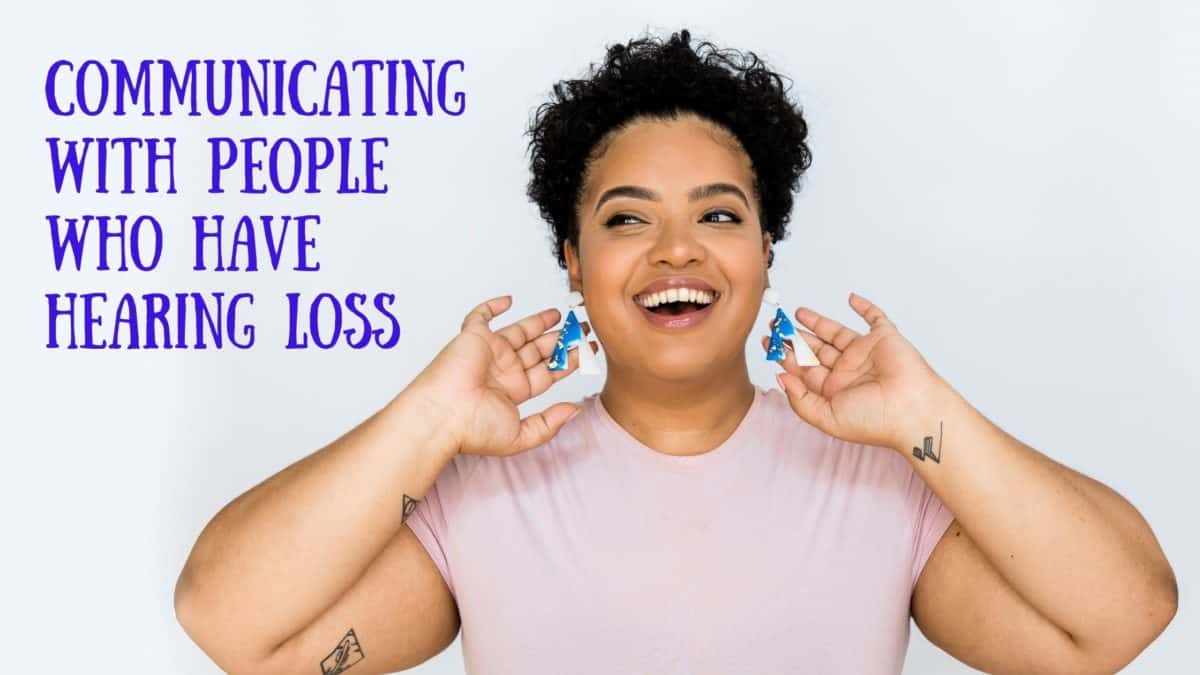- Why Rechargeable Hearing Aids Are Changing the Game for Users - April 27, 2025
- Why DIY Repairs Could Harm Your Hearing Aids - April 15, 2025
- Hearing Protection Solutions for Teamwork - April 6, 2025
Every healthy relationship necessitates effective communication. Through stories, laughs, and passionate debates, we share ourselves and learn about our loved ones.
Communication becomes an enormous difficulty when you have hearing loss. For those with hearing loss, speech recognition is challenging, and if left untreated, hearing loss can lead to social retreat and isolation. This communication breakdown can harm even the strongest relationships.
If you have a family member who suffers from hearing loss or hearing loss yourself and is concerned about hurting your relationships, keep reading to learn how to improve family communication with hearing loss.
Excessive background noise should be avoided
Background noise makes listening difficult for those with hearing loss, so try to avoid situations with loud noises whenever feasible. Turn off the TV/radio, go away from noisy locations, and if you’re in a social situation, try to find a quiet spot or a table in a restaurant away from the kitchen or huge groups.
Get their attention
When you don’t feel like going down the stairs, calling out to a loved one from a different section of the house may become habitual. If a member of your family suffers from hearing loss, this mode of communication is tricky for them to work with.
Give your loved one a little tap on the shoulder or arm, or say their name and look at them in the eyes before you begin speaking to gain their attention. Position yourself face to face with your loved one when speaking so that they can read your facial expression and lips, if necessary.
Have patience
Take a moment before responding if a family member doesn’t grasp a joke or misunderstands what you’ve said and becomes upset. It may hurt your feelings at first, but remember that hearing loss has a significant impact on speech recognition.
They may mix up similar speech sounds or altogether misunderstand words, depending on the severity of their hearing loss. If they misinterpret you, try not to take it personally, be calm, and repeat yourself.
Rephrase when repetition doesn’t work
Keep in mind that louder isn’t always better for someone with hearing loss when repeating yourself. Many with hearing loss report that they have trouble understanding what they’re hearing while they can hear.
Try rephrasing what you’ve already said. Make sure you enunciate and speak clearly. There’s no need to slow down your speech drastically, but you should include a few pauses to allow your family member to catch up.
Teamwork
With our partners and family members, we attend parties, weddings, barbecues, and reunions. At larger parties, your loved one may feel overwhelmed. Make a game plan ahead of time to help your loved one at these social gatherings. Perhaps you’ll want to take a break for a quiet conversation now and again, or perhaps your loved one will need assistance at the dinner table.
Get them to treat their hearing loss
The single most critical thing you can do if a loved one is showing signs of hearing loss is to seek treatment. Hearing loss that goes untreated has been related to a variety of negative repercussions, including increased levels of stress, worry, and depression, as well as social isolation and disengagement. Hearing loss that goes untreated increases the risk of dementia because the brain is put under more cognitive strain to make sense of sound.
Many people wait for seven years between first noticing abnormalities in their hearing and receiving hearing aids. Our brains may become accustomed to muted noises and disorganized speech throughout this period.
Access to rich, magnified speech and sounds with hearing aids can be overpowering at first. Remind your loved ones that you are there to help them through it all.
We offer a full range of hearing services, from hearing tests to hearing aid fittings. Our experts will collaborate with you and your family to identify the best hearing solutions for your loved one’s individual needs. To schedule a consultation, please get in touch with us today.

